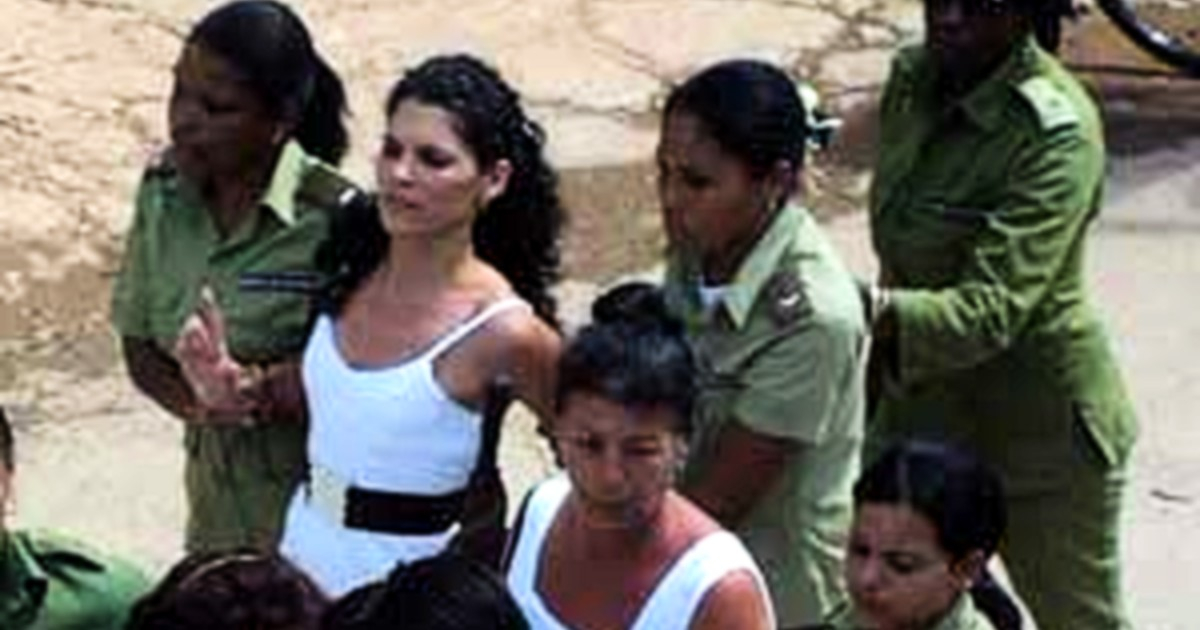
The United States government rejected this Wednesday the Cuban regime's attempt to impose an 11-year prison sentence on the activist.Sayli Navarro Alvarez, for trying to join the peaceful demonstrations on July 11 in Cuba.
“The Cuban regime is seeking an 11-year sentence for activist Sayli Navarro, daughter of detained activist Félix Navarro, for attempting to join the peaceful #11J protests. Both await judgment for attempting the simple act of expressing themselves. #PrisonersWhy”, the ambassador expressed via TwitterBrian A. Nichols, Undersecretary of Western Hemisphere Affairs at the United States Department of State.
The rejection expressed by the US government to the activist's possible sentence is integrated into the campaignPrisoners for what? (Jailed For What, in English) and, in addition, responds to the requests for conviction requested by the Matanzas Prosecutor's Office against activists of the Pedro Luis Boitel Party for Democracy who were arrested duringthe historic 11J protests in Cuba.
Sentences between 6 and 15 years in prison were requested in mid-October by the Cuban authorities against Francisco Rangel Manzano, Tania Echevarría Menéndez, Sissi Abascal Zamora, Leylandis Puentes Vargas, Félix Navarro Rodríguez and Sayli Navarro; who are charged with alleged crimes of contempt and public disorder.
Sayli Navarro Álvarez, daughter of the detained opponent Navarro Rodríguez and the Lady in White, Sonia Álvarez Campello, is awaiting trial with a precautionary measure of house arrest.His father, 68, remains in prison since he went to the Perico police station, in Matanzas, to ask about the members of his organization arrested the day before, during the anti-government protests of 11J. In his case, the prosecution requests 15 years in prison.
Navarro Rodríguez is one of the victims of the repressive wave of March and April 2003, known as Black Spring, during which 75 activists and independent journalists were imprisoned, later prosecuted in summary trials and given sentences of up to more than 20 years in prison. of freedom.
Once he was released from prison in 2011, instead of going into exile, he decided to stay in Cuba to continue his opposition work and activism in favor of human rights.
After his arrest on July 12,The opponent declared a hunger strike that he ended after 28 days of fasting which worsened his state of health, until he ended up incommunicado in a prison infirmary.
“If hospitals do not have resources to care for people, imagine yourself in the prison infirmary,” Sayli then lamented in an audio shared by the opponent.Rosa María Payá, ensuring that the authorities' intention was to let his father die.
"Félix Navarro is in critical condition and Cuban authorities continue to deny his family access to him. The United States asks #JailedForWhat #PresosPorQué and calls for his immediate release," the US State Department spokesperson said in late September. USA, Ned Price.
Precisely, concern about the hunger strike declared by Navarro Rodríguez led his daughter, also Lady in White, to break the precautionary measure of house arrest, which is whyState Security in Matanzas threatened to imprison her if she left her house again.
Launched by the US administration on October 16, 2018 at the United Nations in New York City, the Prisoners Why? (Jailed For What, in English) aims to make visible the cases of political prisoners in Cuba and human rights violations.
Navarro Rodríguez, leader of the Pedro Luis Boitel Movement for Democracy, founded since 1999, is one of the most constant opponents on the national scene. He spent eight years in prison after the Black Spring. Currently the activist is in the prison known as Combinado del Sur.
What do you think?
SEE COMMENTS (2)Filed in: